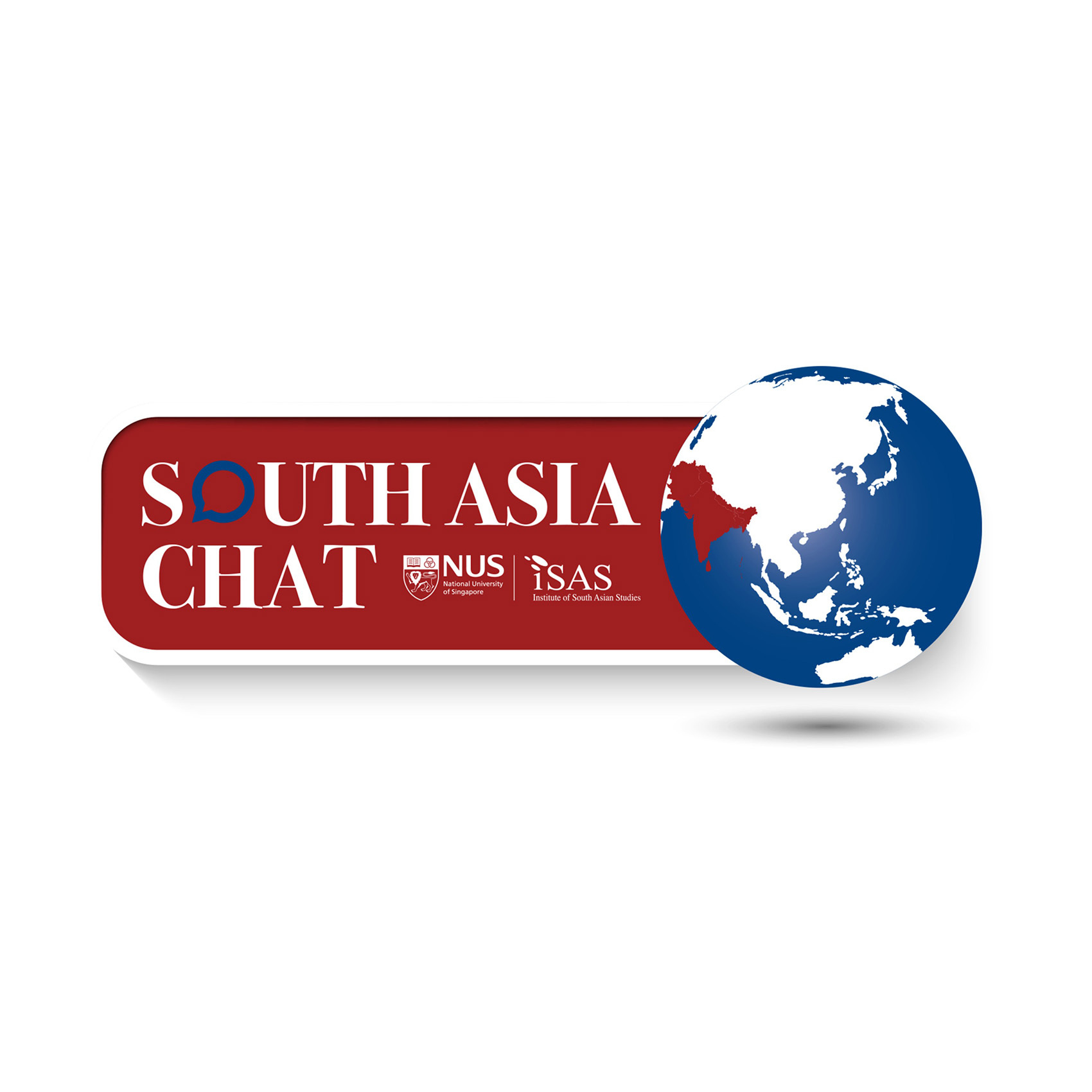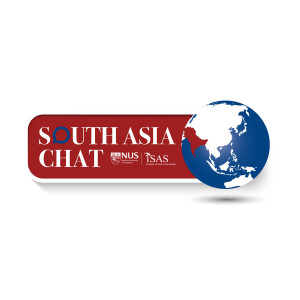
125.4K
Downloads
318
Episodes
South Asia Chat podcast series will feature conversations with analysts, academics and thought leaders on topical issues impacting South Asia.
South Asia Chat podcast series will feature conversations with analysts, academics and thought leaders on topical issues impacting South Asia.
Episodes

Wednesday May 05, 2021
Wednesday May 05, 2021
Of the four states and one union territory that went to election over March and April, West Bengal, rightly or wrongly, was the centre of attention. On election day, it was West Bengal once again that invited the most discussion. This was partly due to the overwhelming verdict in favour of Mamata Banerjee and the Trinamool Congress (TMC) in Bengal despite the Bharatiya Janata Party (BJP) and Prime Minister Narendra Modi having focused considerable energies and resources on the state. The result also upended most exit polls which had predicted a close contest with some surveys having forecast a BJP sweep. The Bengal verdict put into shade somewhat the results in Assam where the incumbent BJP government returned comfortably to office. To discuss the West Bengal and Assam election results, Dr Ronojoy Sen, Senior Research Fellow, ISAS, spoke to Dr Neelanjan Sircar, a Senior Visiting Fellow at the Centre for Policy Research and Assistant Professor at Ashoka University. Sircar followed both state elections closely and was present in both states during the campaign.

Tuesday May 04, 2021
Episode 86: Assembly Elections Special – Left is Right in Kerala
Tuesday May 04, 2021
Tuesday May 04, 2021
The recent Legislative Assembly elections in Kerala has been a historic one with the Left Democratic Front (LDF) returning to power for the second time in a row. The return of an incumbent party has not happened in the last 40 years and is a reaffirmation of the leadership of Chief Minister Pinarayi Vijayan. What led to this victory and why did neither the Congress nor the Bharatiya Janata Party make a visible dent? We spoke to Mr Vinod Rai, Distinguished Visiting Research Fellow at ISAS to share his views on the election results.

Tuesday Apr 27, 2021
Episode 85: Pakistan In Focus
Tuesday Apr 27, 2021
Tuesday Apr 27, 2021
Recent anti-France protests by Tehreek-e-Labbaik Pakistan turned violent leading to the government banning it. Alongside Pakistan is expected to play a key role in the Afghan peace process, following the withdrawal of American troops. With the Taliban almost certain to come into power, would this embolden such religious groups? To discuss more on these developments, we spoke to Dr Aasim Sajjad Akhtar, Non-resident Fellow at ISAS and Associate Professor of Political Economy at the National Institute of Pakistan Studies, Quaid-i-Azam University.

Tuesday Apr 20, 2021
Episode 84: India-Russia Ties
Tuesday Apr 20, 2021
Tuesday Apr 20, 2021
The Russian Foreign Minister Sergey Lavrov was in India on a two-day visit, followed by a stopover in Pakistan which underlined the changing nature of bilateral relations between the two countries. He pointed out Russia's opposition to the Quad by calling it "Asian Nato" while also referring to its relationship with China as being "at the highest in history." To learn more, Nithya Subramanian, Editor at ISAS spoke to Mr Nandan Unnikrishnan, a Distinguished Fellow at the Observer Research Foundation, New Delhi, with expertise in Russia and Eurasia. Unnikrishnan began his career as a journalist with the Press Trust of India (PTI). He was deputed by PTI to the Institute for Defence Studies and Analyses (IDSA) and did a three-year stint in Moscow as its Bureau Chief.

Tuesday Apr 13, 2021
Episode 83: India's Civil-Military Relations
Tuesday Apr 13, 2021
Tuesday Apr 13, 2021
India’s military strength has increased in the past decades. However, it has still some way to go in developing the processes which makes the use of military force effective. The civilian bureaucracy within the Ministry of Defence and military establishment tends to be out of touch in setting national priorities and corresponding military objectives. The book, Absent Dialogue: Politicians, Bureaucrats and the Military in India, captures much of this dysfunction. The author, Dr Anit Mukherjee Deputy Head of Graduate Studies, and an Associate Professor in the South Asia Programme at the S. Rajaratnam School of International Studies (RSIS), Nanyang Technological University, joins ISAS Research Fellow Yogesh Joshi in a conversation on civil-military dysfunction in India and its implications on military efficiency in India.

Tuesday Apr 06, 2021
Episode 82: India’s Privatisation Policy
Tuesday Apr 06, 2021
Tuesday Apr 06, 2021
The Finance Ministry has announced an ambitious disinvestment plan and decided to exit most sectors except four strategic ones. Dr V Anantha Nageswaran, Non Resident Senior Fellow, ISAS and Member (Part Time), Economic Advisory Council to the Prime Minister of India, shares his views on the challenges that the government could face and how it could overcome them, as well as how the Atmanirbhar Bharat (Self-reliant India) programme ties in with its privatisation plan.

Tuesday Mar 30, 2021
Episode 81: Assembly Elections in India
Tuesday Mar 30, 2021
Tuesday Mar 30, 2021
The ongoing elections in the four states of West Bengal, Assam, Tamil Nadu and Kerala as well as the union territory of Puducherry are significant as these will be a test of the Bharatiya Janata Party’s dominance and Prime Minister Narendra Modi’s continuing popularity. These will also evaluate the party’s ability to perform well in areas which are not its traditional bastions and the capacity of regional parties to resist one-party dominance. To discuss the polls and analyse the possible trajectory of the elections, Dr Ronojoy Sen, Senior Research Fellow and Research Lead (Politics, Society and Governance) at ISAS, spoke to Rahul Verma, a Fellow at the Centre for Policy Research.

Wednesday Mar 24, 2021
Episode 80: Quad Summit 2021
Wednesday Mar 24, 2021
Wednesday Mar 24, 2021
The first Quad Summit, where leaders of the United States, India, Australia and Japan met virtually, signalled a continuation of Trump's policy for the Indo-Pacific. It also announced a huge vaccine initiative as well as cooperation in rare minerals which not only challenges China's dominance, but also indicates that the group's focus has not been primarily related to security concerns. To tell us more on the significance of this Quad meeting and what it means for China and the rest of the world, we spoke to Dr Yogesh Joshi, Research Fellow at ISAS.

Tuesday Mar 16, 2021
Episode 79: India-China Military Disengagement
Tuesday Mar 16, 2021
Tuesday Mar 16, 2021
After several rounds of military and diplomatic negotiations, the nine-month long standoff between India and China came to an end with the disengagement of troops along the line of actual control in Eastern Ladakh. While the Chinese Foreign Minister, Wang Yi, has said that "China and India should be friends and partners,” the new Biden administration has not deviated from Trump's stance on China. What led to this thaw and what lay ahead for the two countries especially in the light of the recent Quad summit? Nithya Subramanian, Editor at ISAS spoke to Ambassador Gautam Bambawale, a career diplomat who has served as India’s ambassador to China, Pakistan and Bhutan. He is also a Distinguished Professor at Symbiosis International University, Pune and Senior Advisor to Ola.

Tuesday Mar 09, 2021
Episode 78: Ceasefire Along the Line of Control
Tuesday Mar 09, 2021
Tuesday Mar 09, 2021
In a surprising turn of events in the relationship between India and Pakistan, both countries recently signed a ceasefire agreement along the Line of Control. While this development is a positive step in improving bilateral relations, it is bound to affect domestic politics as well as have broader regional implications. To discuss the foreign policy strategies at play as well as the factors and rationale behind these developments, Dr Yogesh Joshi, a Research Fellow at ISAS spoke to Professor C Raja Mohan, Director of the institute.
